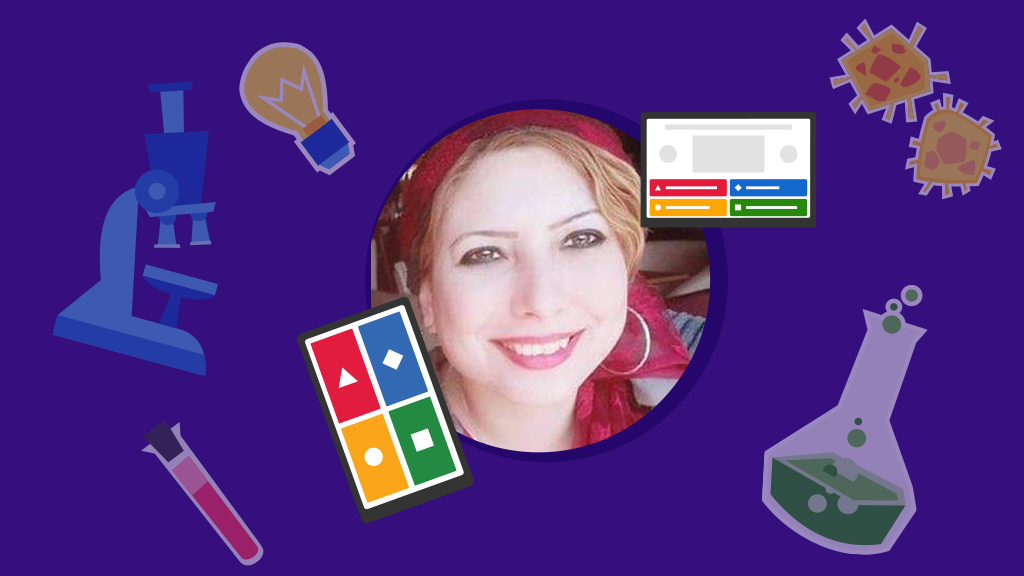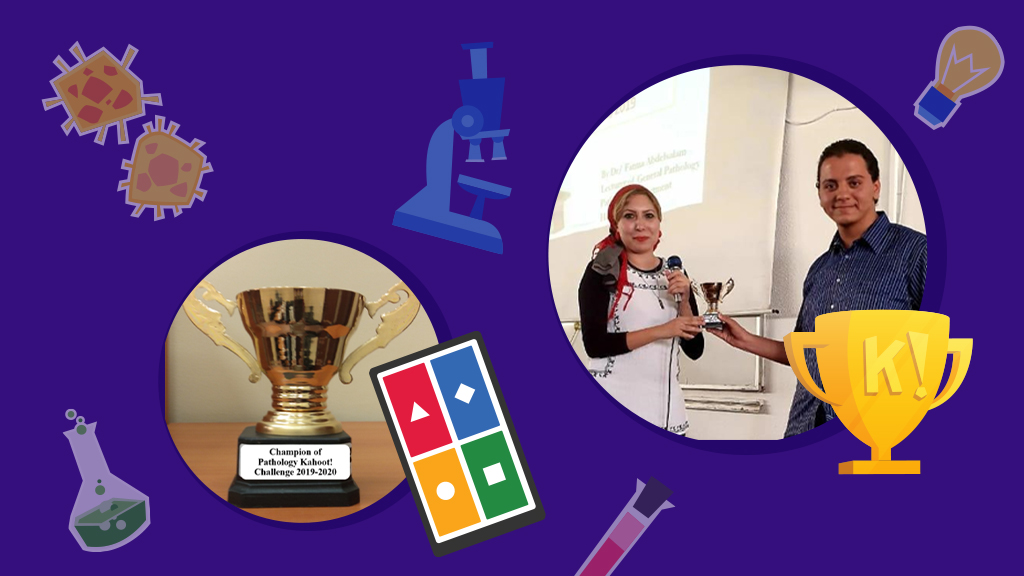Since Kahoot! was founded in 2012, higher education institutions around the world have been making learning awesome with Kahoot!, including 87% of the global top 500 universities. Two years ago, Dr. Fatma Alzahraa A. Elkhamisy—a lecturer of Pathology at Helwan University, Faculty of Medicine—joined this worldwide community of educators and began implementing asynchronous Kahoot! challenges with her first-year students.

While Dr. Elkhamisy quickly saw how eagerly her students competed for the top spot on the podium, she wanted to see what the data said about how Kahoot! was impacting her students’ learning experiences and outcomes. This led her to conducting research and, with her colleague Rita Maher Wassef, publishing a study in Alexandria Journal of Medicine showing how regular Kahoot! challenges were yielding significant improvements in her students’ academic performance, engagement and motivation.
Discovering the Kahoot! experience
We were fortunate to speak with Dr. Elkhamisy about her research and experience using Kahoot! in her classes, and she shared that she was first inspired to introduce Kahoot! to her students after playing it herself.
“I remember when I downloaded the app and started trying it out, I found it so amazing because the music was gorgeous and the countdown was so great. I realized I was playing a kahoot that was probably for children, but even as a university lecturer, I myself felt motivated by the competition. I thought, I want my students to get that experience.”
As Dr. Elkhamisy writes in her research, medical students can feel overwhelmed by all they need to learn during their first years, while educators can find it challenging to teach such a large amount of content and keep students engaged in learning. She also explained that continuous formative assessment is key to ensuring that students are developing the knowledge and skills they need to be successful.
Dr. Elkhamisy continued, “I was thinking, What will my students feel while they are studying? Especially since most students don’t like taking exams and studying with regular practice questions. It feels like an overload for them. So I thought that playing Kahoot! would motivate my students, and actually it did!”





